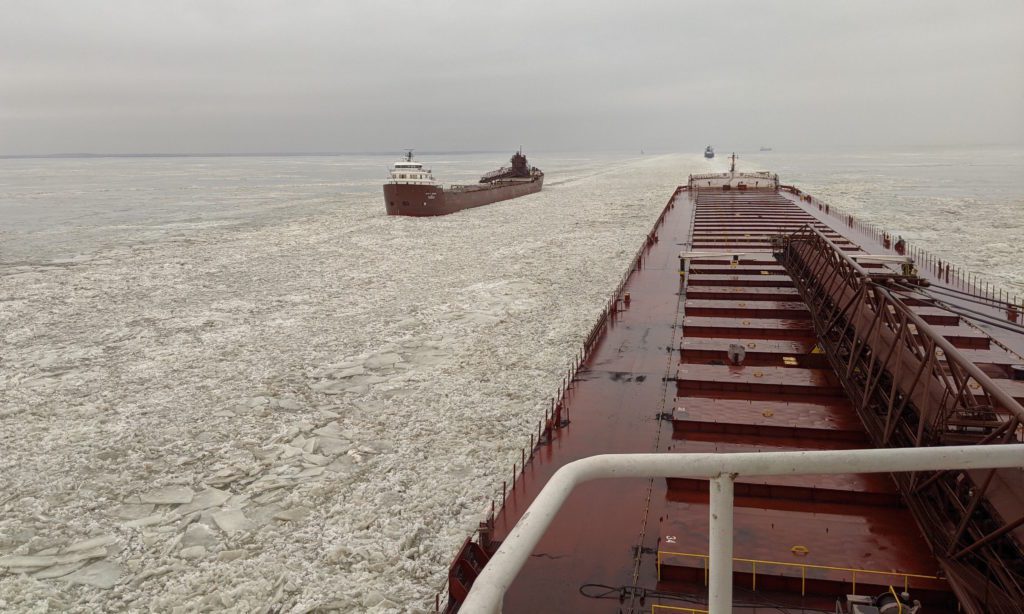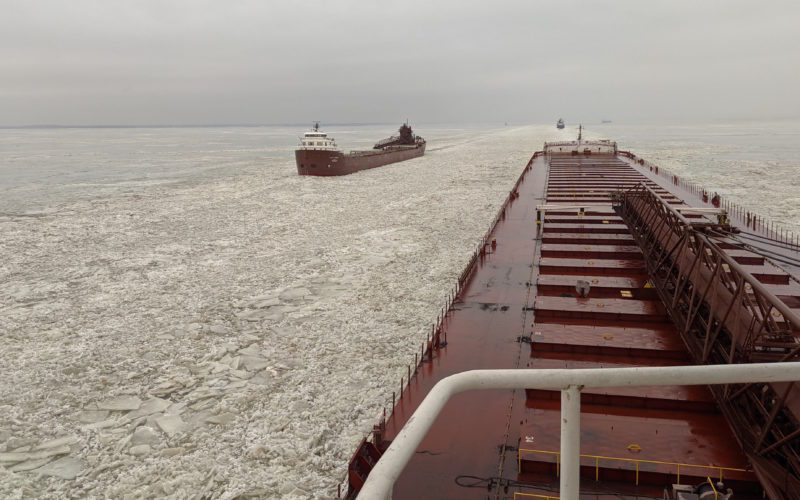(CLEVELAND) – The holidays were not kind to Great Lakes shipping when a massive bomb cyclone created a dangerous flash freeze situation. Once the winds subsided, lakers were greeted with stiff ice that had a tremendous impact on critical late-season raw material deliveries.
Between Dec. 25 and Dec. 30, ships were halted in western Lake Erie and the Detroit River. Ports in Ohio and Michigan were nearly impassable. Almost 327,000 tons of American cargo and carrying capacity, the equivalent of 13,000 truckloads, were delayed 90 total hours, which extended vessel voyages by an average of 10.3 hours.

With only two icebreakers available in the lower Great Lakes between the U.S. and Canadian coast guards, multiple assistance requests were denied, including a voyage into Lorain, Ohio, where a tug and barge combination was forced to decouple in an attempt to free themselves from the ice.
Two U.S. Coast Guard icebreakers were in maintenance and unavailable to assist, including the only heavy icebreaker, Mackinaw. Another suffered an engine failure and two more U.S. and one Canadian icebreaker were scrambling to pull out navigational buoys before they succumbed to the shifting ice sheets.
“As a region and a nation, we need to be more resilient to extreme weather events. The U.S. Coast Guard needs an additional heavy icebreaker here on the Great Lakes,” said Lake Carriers’ Association President Jim Weakley. “Five icebreaking requests were denied simply because they lacked enough nautical snowplows to do the job. The National Defense Authorization Act of 2022 includes critical language to authorize the $350 million the (Coast Guard) needs to design and acquire a new icebreaker at least as capable as the Coast Guard cutter Mackinaw. That law, which was signed in December, also proposes Great Lakes icebreaking performance standards, and calls for a Government Accountability Office study on Great Lakes icebreaking. Unfortunately, the Coast Guard claims it will take 11 years to acquire the new icebreaker.”
– Lake Carriers’ Association

